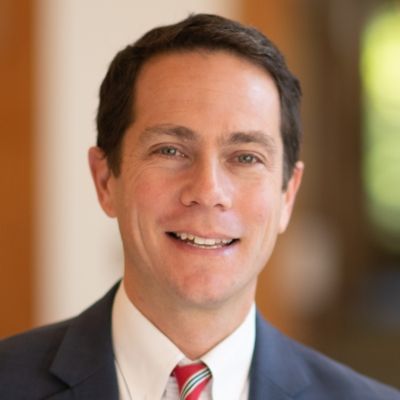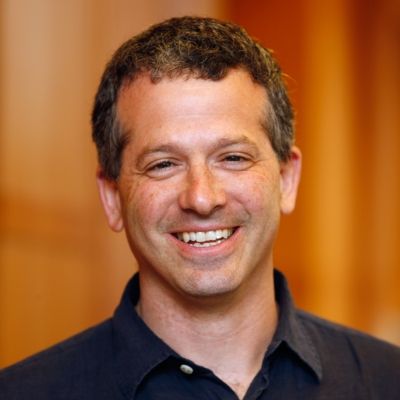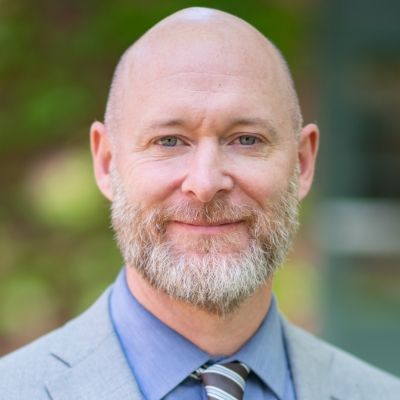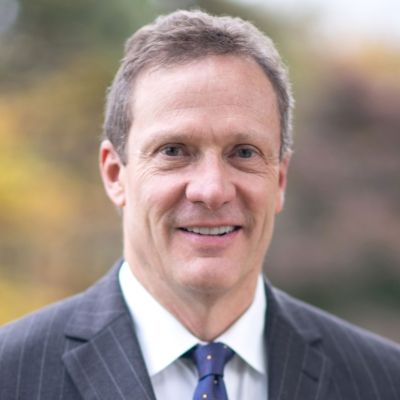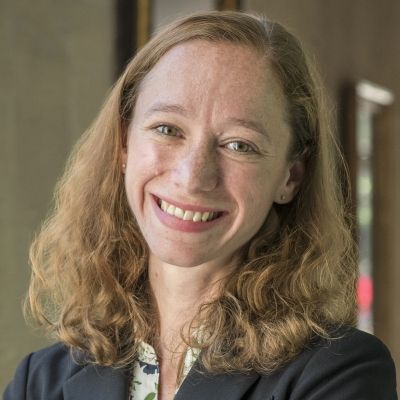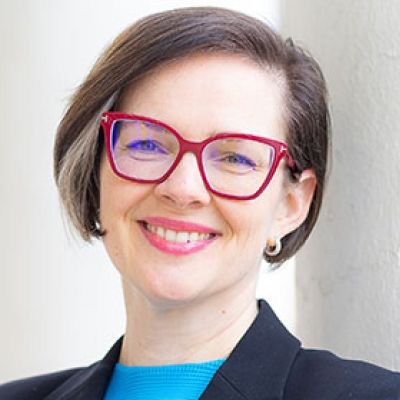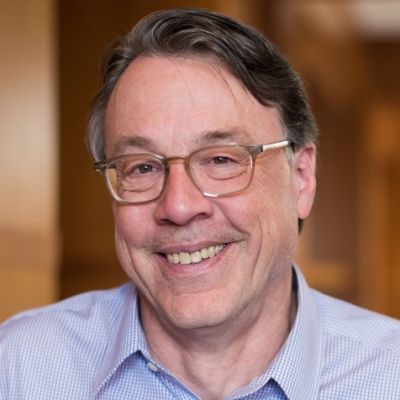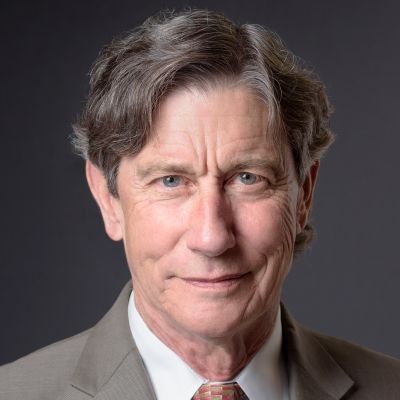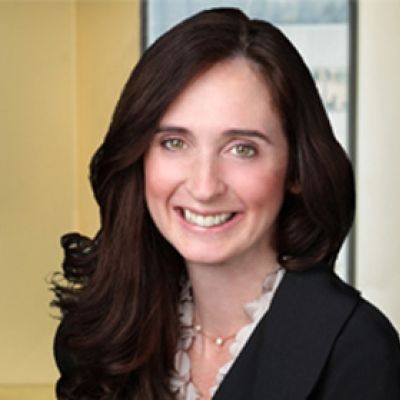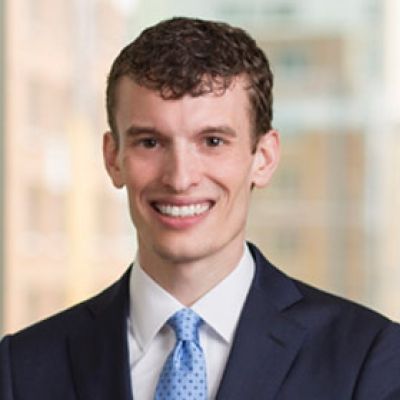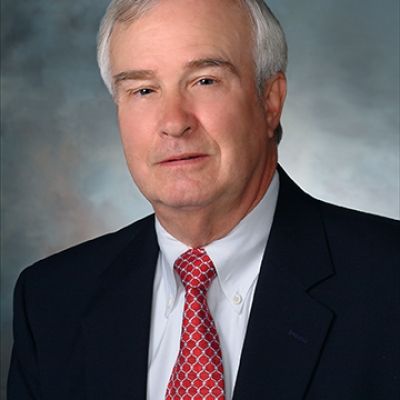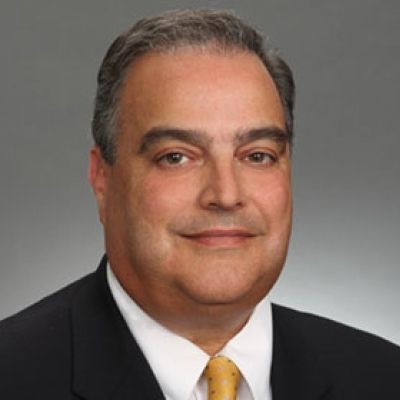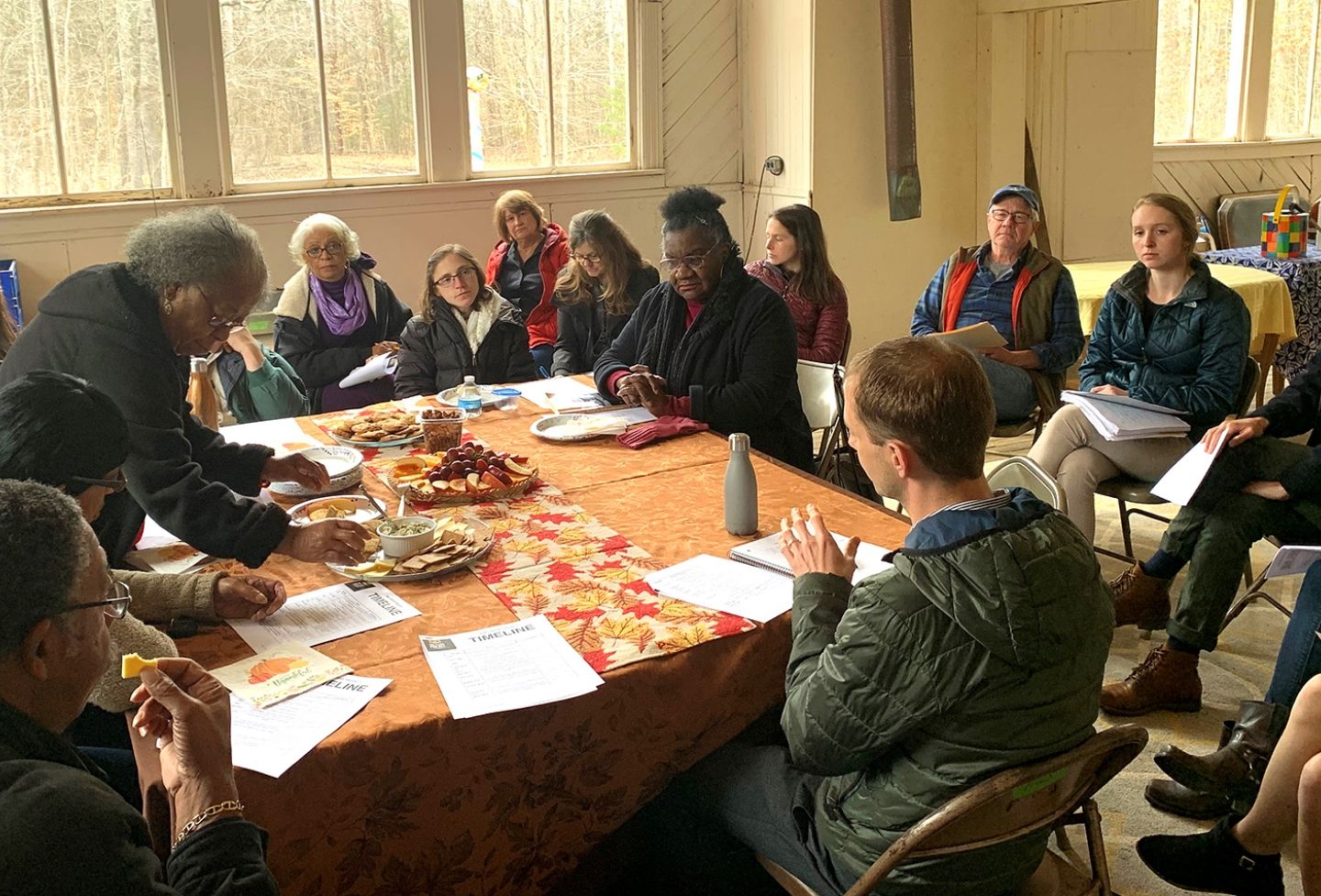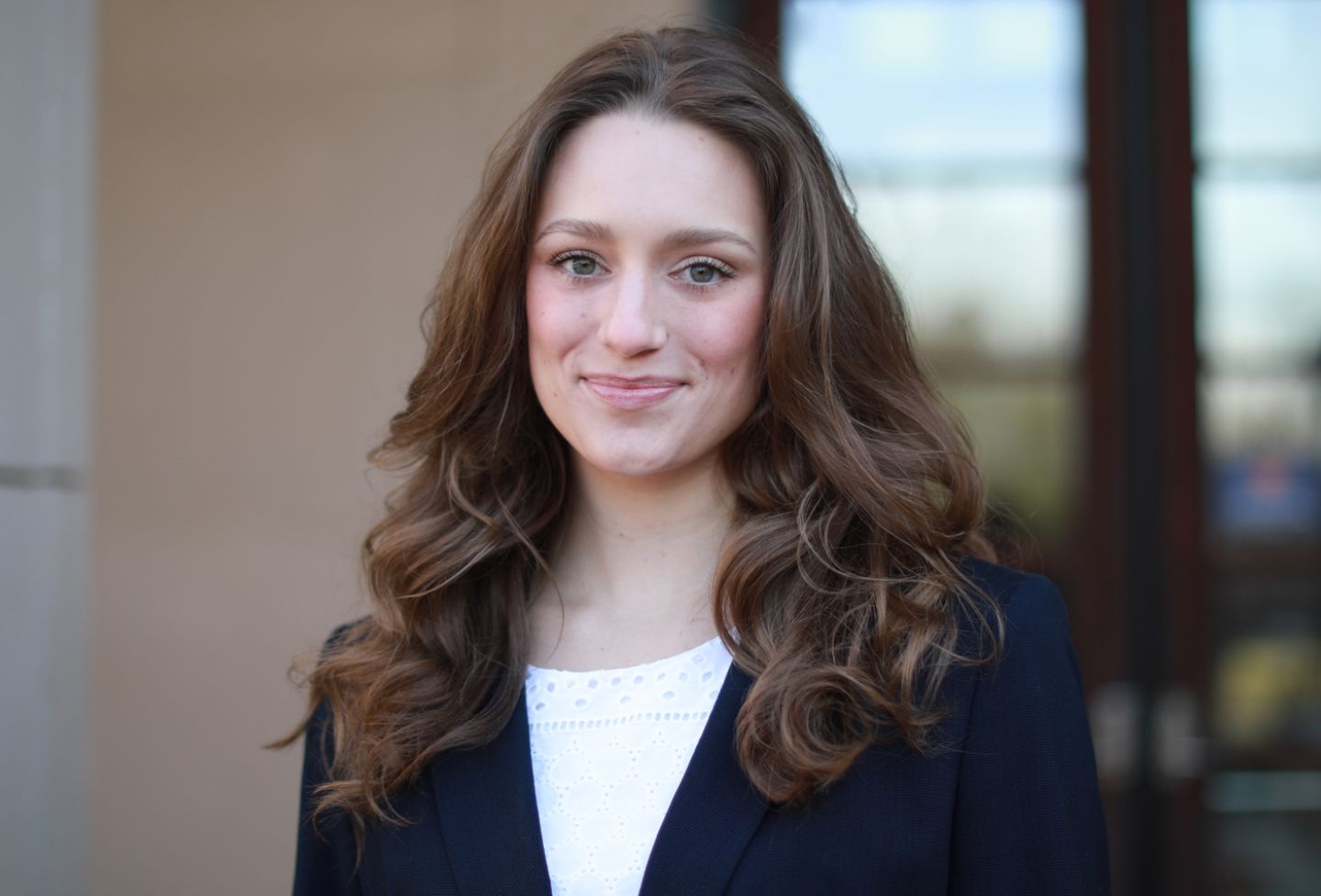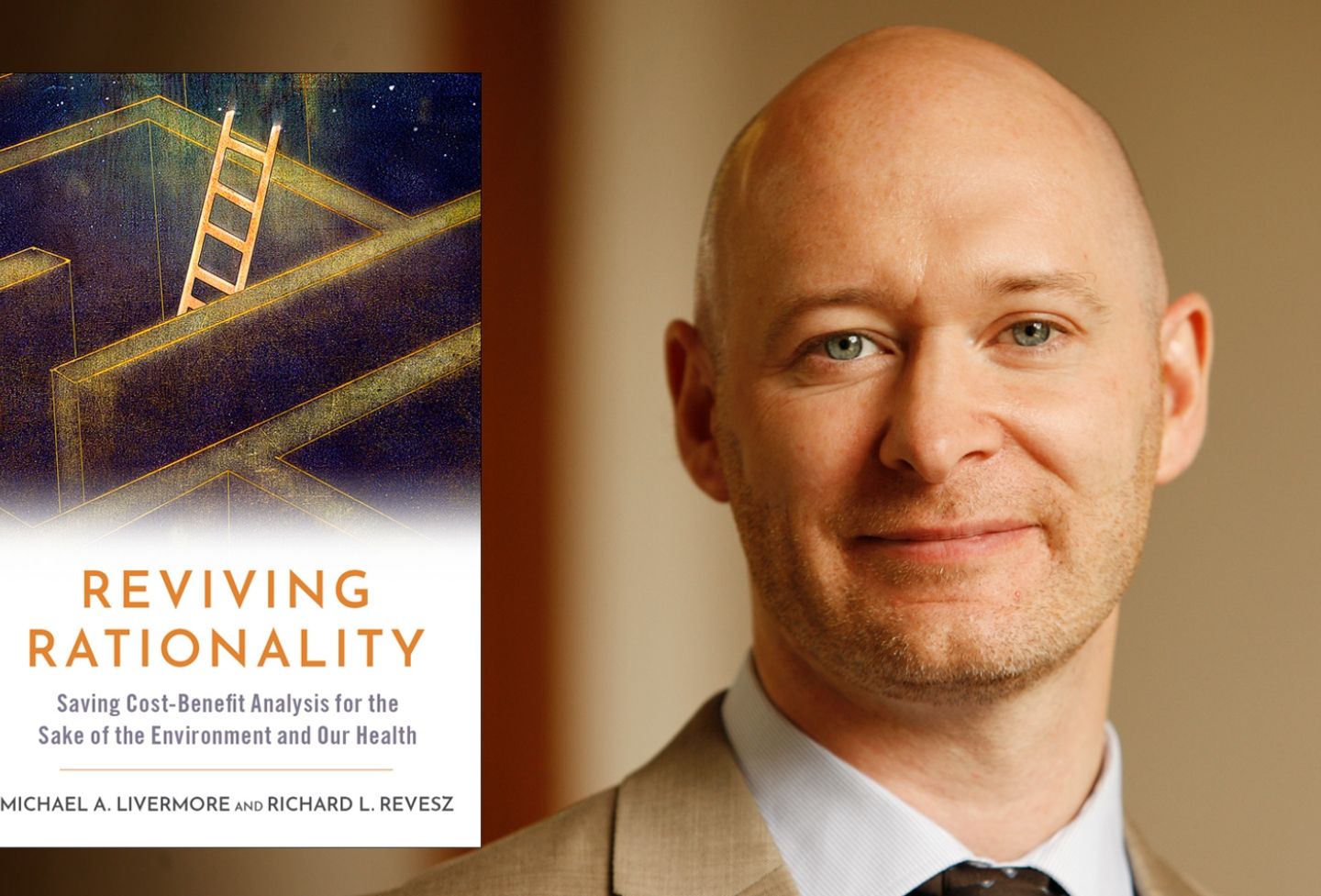About the Program
Environmental challenges are rarely simple. From climate change to local conservation, the challenges of sustainability and long-term environmental health raise complex scientific, ethical, economic and political questions that defy easy answers.
PLACE at UVA empowers students to confront these questions so they can build the practical skills, analytic tools and hands-on experience needed to effect change as environmental leaders in government, business and the not-for-profit sector.
The program combines outstanding legal teaching with opportunities for interdisciplinary study, clinical experience, skills training and scholarly inquiry. Interacting with faculty who research and shape the law at the local, regional and global levels, students at the University of Virginia experience environmental law firsthand as it is practiced today, and study how it can better meet the next generation of challenges. With a wide range of courses, conferences, student groups and opportunities for independent study, students at the University of Virginia are part of a vibrant intellectual community that crosses boundaries of academic disciplines and between practice and scholarship.
The Setting
Nestled in the foothills of the Blue Ridge Mountains, Charlottesville and surrounding Albemarle County provide a beautiful and fruitful setting for the study of land use and environmental issues. The area faces regional growth concerns, including the need to protect biodiversity and open space, provide affordable housing, and respond to climate change. These sometimes conflicting policy demands test relationships among urban, suburban and rural communities, all at a scale that makes the issues realistically accessible to student investigators. The proximity of the Shenandoah National Park, the Jefferson National Forest and the Chesapeake Bay (the Law School is in the bay watershed) provides further opportunity to study problems in regional growth, natural resource policy and watershed management.
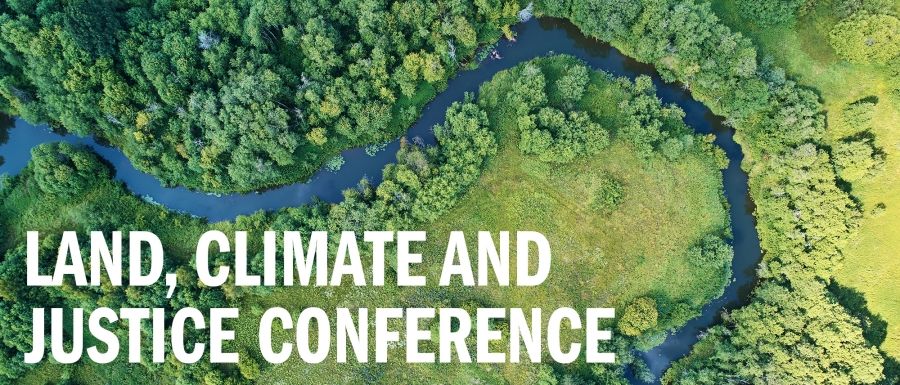
March 28-29, 2024
The symposium will provide a setting for interdisciplinary conversations about a range of topics, including property rights, land use regulation, housing, sustainability, segregation, metropolitan inequality, cities, rural communities and federal-state-local relations. Registration in advance is required to attend.
The Environmental Law and Community Engagement Clinic at the University of Virginia School of Law filed this amicus brief on behalf of San Bernardino...
This article discusses the links between climate and debt sustainability by focusing on how climate mitigation and adaptation are paid for, and who...
In 2021, the U.S. Supreme Court decided PennEast Pipeline Co. v. New Jersey. The case is often associated with a theory of private delegation--that is...
More
Public nuisance has lived many lives. A centuries-old doctrine defined as an unreasonable interference with a right common to the public, it is...
Aspen Ono
This chapter first explains how the federal Clean Water Act is linked with the implementation of other major environmental laws in the United States...
This Article documents and seeks to explain a significant shift in how we construct natural gas pipelines in the United States. Natural gas pipelines...
More
Faculty Director(s)
Cale Jaffe
Professor of Law
Director, Program in Law, Communities and the Environment (PLACE)
Director, Environmental Law and Community Engagement Clinic
Richard C. Schragger
Walter L. Brown Professor of Law
Director, Program in Law, Communities and the Environment (PLACE)
Senior Fellow, Miller Center
The Environmental Law and Community Engagement Clinic at the University of Virginia School of Law filed this amicus brief on behalf of San Bernardino...
This article discusses the links between climate and debt sustainability by focusing on how climate mitigation and adaptation are paid for, and who...
In 2021, the U.S. Supreme Court decided PennEast Pipeline Co. v. New Jersey. The case is often associated with a theory of private delegation--that is...
More
Public nuisance has lived many lives. A centuries-old doctrine defined as an unreasonable interference with a right common to the public, it is...
Aspen Ono
This chapter first explains how the federal Clean Water Act is linked with the implementation of other major environmental laws in the United States...
This Article documents and seeks to explain a significant shift in how we construct natural gas pipelines in the United States. Natural gas pipelines...
More
Patrick Bolton
Lee C Buchheit
Beatrice Weder di Mauro
...Contributions to solving the globe’s environmental crisis are properly expected to come from every country to a greater or lesser degree depending on...
This paper, which appeared as Chapter 7 in Johnston, Climate Rationality: From Bias to Balance (2021), explains the economic and energy security...
Justin Gundlach
In the United States the primary tool to value greenhouse gas emissions reductions in cost-benefit analysis is the social cost of carbon (SCC), which...
More
Housing costs in major coastal metropolitan areas nationwide have skyrocketed, impacting people, the economy, and the environment. Land-use regulation...
Peter Howard
Feedbacks within the climate-economy system are complex. The research analyzing the relationship between human activities and the climate is...
This paper, published as Chapter 16 in Johnston, Climate Rationality (CUP 2021), explains how the U.S. government has derived its estimates of the...
More
Mauricio Guim
There is an increasing push by environmentalists, scholars, and some politicians in favor of environmental rights stated in very general terms...
This Essay explores how private landowners bargain with federal environmental regulatory authorities under two important federal environmental...
Eric Biber
California has endured devastating fire seasons over the past few years, with billions of dollars of damages, thousands of homes lost, and dozens dead...
After an environmental problem has been discovered – a fish kill or noxious smell emanating from a nearby river, for example – our thoughts...
Inadequate housing supply in California’s most expensive metro areas drives a statewide housing crisis that challenges climate policy implementation...
The United States has long been an urban country, but it is fast becoming a metropolitan one. Population and economic activity are now concentrated in...
American cities are under attack. The last few years have witnessed an explosion of preemptive legislation challenging and overriding municipal...
More than eighty years after Justice Brandeis coined the phrase “laboratories of democracy,” the concept of policy experimentation retains its...
Despite the urban resurgence of the last few decades, American cities are still remarkably weak in relation to both markets and the centralizing...
Richard L. Revesz
Under the Clean Air Act, the U.S. Environmental Protection Agency (EPA) is required to determine the stringency of the National Ambient Air Quality...
The ‘social cost of carbon’ is an economic concept that represents – in monetary net present value terms – the damages caused by the emission of a ton...
Reigning theories of urban power suggest that in a world dominated by footloose transnational capital, cities have little capacity to effect social...
This essay, prepared for a symposium hosted by the William & Mary Environmental Law and Policy Review and the Virginia Coastal Policy Clinic, focuses...
This Essay examines and explains the positions of the principal interest groups over the past four decades with respect to the two central questions...
This paper explicates the four building blocks underlying emission standard guidelines in the U.S. EPA's proposed clean power plan for reducing carbon...
Costs of carbon emissions are being underestimated, but current estimates are still valuable for setting mitigation policy.
This Article sets out a positive theory that explains the late twentieth-century federalization of American environmental law. On this theory...
Richard L. Revesz
Under the Clean Air Act, the U.S. Environmental Protection Agency (EPA) is required to determine the stringency of the National Ambient Air Quality...
Although the term is still rarely used in the United States, in recent years “green growth” has become part of the lexicon of global environmental...
J. Scott Holladay
We develop a model of international agreements to price a transboundry externality and provide a new heuristic to aid in interpreting negotiation...
This Essay highlights the challenges faced by policymakers at a time when the concept of the “progressive city” seems almost an oxymoron. The...
Sean M. Carney
This 2010 article provides an update on developments in environmental law, focusing primarily on efforts to address climate change, restoration of the...
Sean M. Carney
This 2010 article provides an update on developments in environmental law, focusing primarily on efforts to address climate change, restoration of the...
Legal scholarship has come to accept as true the various pronouncements of the Intergovernmental Panel on Climate Change (IPCC) and other scientists...
This article argues that international greenhouse gas (GHG) cap-and-trade schemes suffer from inherent problems of enforceability and verifiability...
The recent wave of global warming legislation and litigation represents a triumph for climate change activists. But it is in no way a rational...
This article analyzes the law and economics of market internalization: the capability of markets to both penalize and reward firms for their...
Legal academics and international-relations scholars have recently undertaken a great deal of interdisciplinary work on the interaction of...
Support for land preservation is in large part rooted in the conviction that present generations have an obligation to benefit future generations by...
Written before the Hague negotiations on climate change held in November of 2000 (the so-called "COP-6" meeting), this essay argues that the COP-6...
This paper develops a simple economic framework that is used to explain and critique the recent trend favoring site-specific contractual commitments...
Resident Faculty
Resident Faculty
Environmental law and climate change, administrative law
Environmental and regulatory law, energy policy, climate change policy
Separation of church and state, property, local government and land use
Law and economics, environmental liability
Energy law, environmental law, administrative law
International law, including international environmental law and counterfactual diplomatic history
Other Faculty
Environmental and land use law
Courses and Seminars
PLACE at UVA includes more than 15 elective courses and seminars, including several interdisciplinary classes co-taught by law professors and faculty in urban planning, environmental sciences and the humanities. Students also undertake independent research projects on subjects of their choosing. Recent topics have included climate change nuisance claims, land conservation in the Chesapeake Bay watershed, and the governance of the National Trails System.
The following is a list of courses offered during 2021-24. Numbers in parentheses indicate which academic year(s) the courses were offered, i.e., 2021-22 is coded (22), 2022-23 is coded (23) and 2023-24 is coded (24). (SC) stands for short course and (YR) stands for yearlong.
Climate Change Law (23)
Climate Law and Climate Ethics (24)
Conservation Planning and Law (22,23,24)
Energy and Environmental Products Trading and Commodities Regulation (SC) (22,23)
Energy and the Environment (22)
Energy Regulation and Policy (23,24)
Environmental Law (22,23,24)
Historic Preservation Law (22,23)
History of the American Administrative State (24)
International Environmental Law (22,23)
Land Use Law (22,23)
Law of Public-Private Partnerships (22,23,24)
Modern Real Estate (22)
Natural Resources Law and Policy (22,23)
Public Utility Regulation Seminar (23)
State and Local Government Law (24)
Theory and Practice of Biodiversity Conservation (22,23)
Urban Law and Policy (23,24)
Water Law and Policy (22)
Wine and the Law (23)
Family Law (22,23,24)
After Dobbs (SC) (23)
Children and the Law (22,23,24)
Decriminalizing Mental Illness (22)
Education Law Survey (22,23)
Estate Planning: Principles and Practice (22,23,24)
Climate Law and Climate Ethics (24)
Conservation Planning and Law (22,23,24)
Energy and Environmental Products Trading and Commodities Regulation (SC) (22,23)
Energy and the Environment (22)
Energy Regulation and Policy (23,24)
Environmental Law (22,23,24)
Historic Preservation Law (22,23)
History of the American Administrative State (24)
International Environmental Law (22,23)
Land Use Law (22,23)
Law of Public-Private Partnerships (22,23,24)
Modern Real Estate (22)
Natural Resources Law and Policy (22,23)
Public Utility Regulation Seminar (23)
State and Local Government Law (24)
Theory and Practice of Biodiversity Conservation (22,23)
Urban Law and Policy (23,24)
Water Law and Policy (22)
Wine and the Law (23)
Family Law (22,23,24)
After Dobbs (SC) (23)
Children and the Law (22,23,24)
Decriminalizing Mental Illness (22)
Education Law Survey (22,23)
Estate Planning: Principles and Practice (22,23,24)
Clinics
Advanced Environmental Law and Community Engagement Clinic (22,23,24)
Environmental Law and Community Engagement Clinic (22,23,24)
Civil Rights Clinic (YR) (22,23,24)
UVA Courses
Students may receive Law School credit for related graduate courses offered by other departments and schools in the University, including classes on topics such as preservation planning, land use policy, ecology, climatology and business-government relations. Students can obtain joint degrees in law and land use planning, business or environmental sciences.
The Environmental and Regulatory Law Clinic at the University of Virginia School of Law has joined an effort to protect a historic African American schoolhouse.
The federal process for reviewing proposed interstate natural gas pipelines was highly contentious several decades ago and is now more of a rubber stamp. UVA Law professor Alison Gocke looks at what changed.
Courses and Seminars
PLACE at UVA includes more than 15 elective courses and seminars, including several interdisciplinary classes co-taught by law professors and faculty in urban planning, environmental sciences and the humanities. Students also undertake independent research projects on subjects of their choosing. Recent topics have included climate change nuisance claims, land conservation in the Chesapeake Bay watershed, and the governance of the National Trails System.
The following is a list of courses offered during 2021-24. Numbers in parentheses indicate which academic year(s) the courses were offered, i.e., 2021-22 is coded (22), 2022-23 is coded (23) and 2023-24 is coded (24). (SC) stands for short course and (YR) stands for yearlong.
Climate Change Law (23)
Climate Law and Climate Ethics (24)
Conservation Planning and Law (22,23,24)
Energy and Environmental Products Trading and Commodities Regulation (SC) (22,23)
Energy and the Environment (22)
Energy Regulation and Policy (23,24)
Environmental Law (22,23,24)
Historic Preservation Law (22,23)
History of the American Administrative State (24)
International Environmental Law (22,23)
Land Use Law (22,23)
Law of Public-Private Partnerships (22,23,24)
Modern Real Estate (22)
Natural Resources Law and Policy (22,23)
Public Utility Regulation Seminar (23)
State and Local Government Law (24)
Theory and Practice of Biodiversity Conservation (22,23)
Urban Law and Policy (23,24)
Water Law and Policy (22)
Wine and the Law (23)
Family Law (22,23,24)
After Dobbs (SC) (23)
Children and the Law (22,23,24)
Decriminalizing Mental Illness (22)
Education Law Survey (22,23)
Estate Planning: Principles and Practice (22,23,24)
Climate Law and Climate Ethics (24)
Conservation Planning and Law (22,23,24)
Energy and Environmental Products Trading and Commodities Regulation (SC) (22,23)
Energy and the Environment (22)
Energy Regulation and Policy (23,24)
Environmental Law (22,23,24)
Historic Preservation Law (22,23)
History of the American Administrative State (24)
International Environmental Law (22,23)
Land Use Law (22,23)
Law of Public-Private Partnerships (22,23,24)
Modern Real Estate (22)
Natural Resources Law and Policy (22,23)
Public Utility Regulation Seminar (23)
State and Local Government Law (24)
Theory and Practice of Biodiversity Conservation (22,23)
Urban Law and Policy (23,24)
Water Law and Policy (22)
Wine and the Law (23)
Family Law (22,23,24)
After Dobbs (SC) (23)
Children and the Law (22,23,24)
Decriminalizing Mental Illness (22)
Education Law Survey (22,23)
Estate Planning: Principles and Practice (22,23,24)
Clinics
Advanced Environmental Law and Community Engagement Clinic (22,23,24)
Environmental Law and Community Engagement Clinic (22,23,24)
Civil Rights Clinic (YR) (22,23,24)
UVA Courses
Students may receive Law School credit for related graduate courses offered by other departments and schools in the University, including classes on topics such as preservation planning, land use policy, ecology, climatology and business-government relations. Students can obtain joint degrees in law and land use planning, business or environmental sciences.
The Environmental and Regulatory Law Clinic at the University of Virginia School of Law has joined an effort to protect a historic African American schoolhouse.
The federal process for reviewing proposed interstate natural gas pipelines was highly contentious several decades ago and is now more of a rubber stamp. UVA Law professor Alison Gocke looks at what changed.
Beyond the Curriculum
The Law School's support for learning opportunities in environmental and land use law goes deeper than course offerings.
PLACE Projects
With funds provided in part by the Henry L. & Grace Doherty Charitable Foundation, PLACE will sponsor teaching, discourse, research and community engagement on questions of environmental law and social justice as they relate to diverse communities and places. Areas of focus for these special projects include environmental justice; the connections between urban and rural environments; relationships among processes at local, regional and global scales; social and environmental changes affecting communities; and law’s role in defining and protecting the values of places.
Adapting to impacts and mitigating greenhouse gas emissions present critical trade-offs at the community scale, and between communities and broader scales. A central concern of PLACE is the laws, policies and other tools that are needed to help societies make these decisions in a fair and rational way.
Symposia
Over the past dozen years, the Law School has sponsored national conferences on growth management, nature conservation, environmental contracting, revitalization of contaminated land, transboundary watershed management and climate change. These symposia attracted leading practitioners and scholars and top government officials. Law students help plan these conferences and edit and publish the papers that emerge from them.
Virginia Environmental Law Journal
Founded in 1979 and managed and edited by students, the journal is a leader in environmental legal scholarship. Website
Virginia Environmental Law Forum
This popular and active student group hosts speakers and networking events, and sponsors law students who participate in environmental moot court and negotiation competitions. The forum, in cooperation with the Law School’s Mortimer Caplin Public Service Center, also provides pro bono opportunities to students interested in environmental law. Students may choose from a range of environmental pro bono projects on behalf of public interest and governmental clients that have requested assistance. Forum members also have opportunities to network with environmental law employers and professionals.
Website
Food Law at Virginia Association
FLAVA strives to create a network of students, professionals and community members who are interested in creating a more just and sustainable food system. Website
Virginia Animal Law Society
The Virginia Animal Law Society is dedicated to providing a forum for education, advocacy, and scholarship aimed at advancing the interests of animals through the legal system. Website
Public Service
The Law School has made a strong financial commitment to students choosing to pursue public interest careers. The school’s Mortimer Caplin Public Service Center helps students interested in environmental law find summer internships and postgraduate employment. Public Service Center
Brecken Petty, a second-year student at the University of Virginia School of Law, discusses her interest in environmental law and goals as president of Virginia Law Women.
David Troutt of Rutgers Law School and Thad Williamson of the University of Richmond discuss pathways to racial and economic equity, with a focus on the effects of local and regional housing, employment and anti-poverty policies. UVA Law professor Richard Schragger moderated the event, hosted by PLACE: The Program in Law, Communities and the Environment. The event was the third in the program’s “PLACE and Power” series of virtual conversations exploring connections between human place-based relationships and the law and politics of environmental governance.
Podcast
PLACE-affiliated professor Michael Livermore leads a podcast featuring discussions with experts in environmental issues.
SEASON TWO
Cale Jaffe on Environmental Advocacy and Clinical Education
Cale Jaffe is director of the Environmental Law and Community Engagement Clinic at the University of Virginia School of Law.
Free Range with Mike Livermore · Cale Jaffe on Environmental Advocacy and Clinical Education
Nicholas Allen on Blue Humanities and Irish Literature
Scholar Nicholas Allen talks about his recent book "Ireland, Literature and the Coast: Seatangled."
Free Range with Mike Livermore · Nicholas Allen on Blue Humanities and Irish Literature
Lisa Robinson on Cost-Benefit Analysis
Lisa Robinson is a senior research scientist and the deputy director at the Center for Health at the Harvard School of Public Health. She is a leading expert in the use of cost-benefit analysis to evaluate public policy.
Free Range with Mike Livermore · Lisa Robinson on Cost-Benefit Analysis
Leif Wenar on Unity and the Resource Curse
Leif Wenar is a professor of philosophy at Stanford University and author of "Blood Oil: Tyrants, Violence, and the Rules that Run the World."
Free Range with Mike Livermore · Leif Wenar on Unity and the Resource Curse
Lisa Heinzerling on Environmental Law and the Supreme Court
Lisa Heinzerling is an environmental law professor at Georgetown University and former Associate Administrator of the Environmental Protection Agency's Office of Policy during the Obama administration.
Free Range with Mike Livermore · Lisa Heinzerling on Environmental Law and the Supreme Court
Jessica Locke on Buddhism and Environmental Engagement
Jess Locke is an associate professor of philosophy at Loyola University, Maryland. She studies Buddhism, Western psychology, and cross-cultural philosophy.
Free Range with Mike Livermore · Jessica Locke on Buddhism and Environmental Engagement
Lee Fennell on Rethinking Property
Lee Fennell is a law professor at the University of Chicago and author of "Slices and Lumps: Division and Aggregation in Law and Life."
Free Range with Mike Livermore · Lee Fennell on Rethinking Property · Transcript
Sabeel Rahman on Democracy and Administration
Sabeel Rahman is a professor at Cornell Law School with substantial public policy experience, including as president of the think tank Demos and as senior counselor and then later as the acting Administrator in the Office of Information and Regulatory Affairs in the Biden administration. Rahman is also the author of the book “Democracy Against Domination” amongst other works.
Free Range with Mike Livermore · Sabeel Rahman on Democracy and Administration · Transcript
Holly Doremus on Conservation in the Anthropocene
Holly Doremus is a professor of environmental law at Berkeley and the co-director for the Berkeley Institute for Parks, People, and Diversity. Doremus has a interdisciplinary background with a PhD in Plant Physiology from Cornell in addition to her JD.
Free Range with Mike Livermore · Holly Doremus on Conservation in the Anthropocene · Transcript
Richard Lazarus on the Shifting Politics of Environmental Law
Harvard Law professor Richard Lazarus is the author of the book “The Making of Environmental Law,” which is now out in its second edition.
Free Range with Mike Livermore · Richard Lazarus on the Shifting Politics of Environmental Law · Transcript
Curtis, Gulati, and Weidemaier on Empty Green Promisess
UVA Law professors Quinn Curtis and Mitu Gulati, and UNC-Chapel Hill Law professor Mark Weidemaier are all experts in the regulation of financial markets. They discuss their new paper, "Green Bonds and Empty Promises."
Free Range with Mike Livermore · Curtis, Gulati, and Weidemaier on Empty Green Promises · Transcript
Ganesh Sitaraman & Shelley Welton on Networks, Platforms, and Utilities
Vanderbilt law professor Ganesh Sitaraman and University of Pennsylvania law professor Shelley Welton are experts in regulatory policy and are co-authors of a new case book Networks, Platforms, and Utilities.
Free Range with Mike Livermore · Ganesh Sitaraman & Shelley Welton on Networks, Platforms, and Utilities · Transcript
Jenny Kendler on Art and Environmental Crisis
Jenny Kendler is the artist in residence with NRDC. Kendler is an artist and activist whose work focuses on climate change and biodiversity loss.
Free Range with Mike Livermore · Jenny Kendler on Art and Environmental Crisis · Transcript
Danae Hernandez-Cortes on Environmental Economics & Justice
Danae Hernandez-Cortes is an economist and professor in the School of Sustainability at Arizona State University who studies environmental justice and the distributional consequences of environmental policy.
Free Range with Mike Livermore · Danae Hernandez-Cortes on Environmental Economics & Justice · Transcript
Paul Stephan on the Knowledge Economy and Global Politics
Paul Stephan is a comparative and international law expert at UVA Law and author of the new book, “The World Crisis and International Law: The Knowledge Economy and the Battle for the Future,” recently published by Cambridge University Press.
Free Range with Mike Livermore · Paul Stephan on the Knowledge Economy and Global Politics · Transcript
Alex Wang on Environmental Governance in China
Alex Wang is a professor of law at UCLA, co-director of the Emmett Institute on Climate Change and the Environment, and expert on the law and politics of Chinese environmental governance.
Free Range with Mike Livermore · Alex Wang on Environmental Governance in China · Transcript
Emma Marris on Ethics and the Non-Human World
Emma Marris is an award-winning environmental writer and author of Wild Souls: Freedom and Flourishing in the Non-human World.
Free Range with Mike Livermore · Emma Marris on Ethics and the Non-Human World · Transcript
Jed Stiglitz on the Reasoning State
Jed Stiglitz is a law professor at Cornell whose new book, The Reasoning State, was recently published by Cambridge University Press.
Free Range with Mike Livermore · Jed Stiglitz on the Reasoning State · Transcript
Alex Guerrero on Democracy by Lottery
Alex Guerrero is a philosophy professor at Rutgers who writes in moral and political philosophy. He is a leading philosophical defender of the idea of lottocracy—the practice of choosing political leaders through lottery rather than elections.
Free Range with Mike Livermore · Alex Guerrero on Democracy by Lottery · Transcript
Explainer: The Controversy over Wood Pellets
This episode explains the pros and cons of wood pellets as a replacement for fossil fuels.
Free Range with Mike Livermore · Explainer: The Controversy over Wood Pellets · Transcript
Laura Candiotto on Loving Nature
Laura Candiotto is a Professor of Philosophy at the University of Pardubice in the Czech Republic.
Free Range with Mike Livermore · Laura Candiotto on Loving Nature · Transcript
SEASON ONE
Host Mike Livermore on Interdisciplinary Engagement
UVA Law professor Mike Livermore concludes Season 1 of Free Range with a solo episode on the value of interdisciplinary engagement.
Free Range with Mike Livermore · Host Mike Livermore on Interdisciplinary Engagement · Transcript
Rich Schragger on the Power of Cities
UVA Law professor Rich Schragger is a leading expert on local government, federalism, and urban policy and the author of City Power: Urban Governance in a Global Age.
Free Range with Mike Livermore · Rich Schragger on the Power of Cities · Transcript
Michael Greenstone on Economics and Environmental Policy
Michael Greenstone is the Milton Freedman Distinguished Service Professor in Economics and the Director of the Energy Policy Institute at the University of Chicago. He served as the Chief Economist for President Obama’s Council of Economic Advisors and has worked for decades engaged in research and policy development on environmental issues.
Free Range with Mike Livermore · Michael Greenstone on Economics and Environmental Policy · Transcript
Gerald Torres on Environmental Justice
Gerald Torres is a professor at the Yale School of the Environment and Yale Law School and director of the Yale Center for Environmental Justice. Torres explores the connections between environmental law and social justice from a scholarly and practical perspective.
Free Range with Mike Livermore · Gerald Torres on Environmental Justice · Transcript
Katherine Blunt on Energy and Wildfires
Katherine Blunt is a journalist at The Wall Street Journal and the recent author of “California Burning: The Fall of Pacific Gas and Electric and What it Means for America’s Power Grid.”
Free Range with Mike Livermore · Katherine Blunt on Energy and Wildfires · Transcript
Jonathan Colmer on Environmental Inequality
Jonathan Colmer is an assistant professor at the University of Virginia’s Department of Economics and the director of the Environmental Inequality Lab. His research interests are in environmental economics, development economics and the distributional impacts of environmental policy.
Free Range with Mike Livermore · Jonathan Colmer on Environmental Inequality · Transcript
Michelle Wilde Anderson on America's Cities
Stanford law professor Michelle Wilde Anderson is the author of “The Fight To Save The Town: Reimagining Discarded America,” published in June 2022.
Free Range with Mike Livermore · Michelle Wilde Anderson on America's Cities · Transcript
Henry Skerritt on Art and Politics
Henry Skerritt is curator of indigenous arts of Australia at the Kluge-Ruhe Aboriginal Art Collection at the University of Virginia.
Free Range with Mike Livermore · Henry Skerritt on Art and Politics · Transcript
Jed Purdy on the Value of Democracy
Duke law professor Jed Purdy is the author of the forthcoming “Two Cheers for Politics: Why Democracy is Flawed, Frightening – and Our Best Hope.”
Free Range with Mike Livermore · Jed Purdy on the Value of Democracy · Transcript
Matthew Burtner on Ecoacoustics
Matthew Burtner is a professor of compositions and computer technologies in the music department at the University of Virginia. Burtner’s work explores ecology and the aesthetic link between human expression and environmental systems. His latest album is “Ice Field.”
Free Range with Mike Livermore · Matthew Burtner on Ecoacoustics · Transcript
Moira O'Neill on Housing and Environmental Review
Moira O’Neill is a professor of Urban and Environmental Planning at the University of Virginia who also has a joint appointment at UVA Law. Her work covers land use, climate change, equity and resilience. A specific area of her research is land use law and its relationship to housing affordability, integration and environmental impacts in California.
Free Range with Mike Livermore · Moira O'Neill on Housing and Environmental Review · Transcript
Ronald Sandler on Ethics and Species
Ronald Sandler, a professor of philosophy at Northeastern University, writes on environmental ethics, emerging technologies and ethical issues surrounding climate change, food and species conservation. His books include “Environmental Ethics: Theory and Practice” and “The Ethics of Species.”
Free Range with Mike Livermore · Ronald Sandler on Ethics and Species · Transcript
Jonathan Adler on Federalism and Environmental Law
Jonathan Adler is a law professor at Case Western Reserve University who writes on environmental law, federalism and regulation. In 2020, Brookings Institution Press published Adler’s edited “Marijuana Federalism: Uncle Sam and Mary Jane.”
Free Range with Mike Livermore · Jonathan Adler on Federalism and Environmental Law · Transcript
Frances Moore on Modeling Climate Politics
Frances Moore is a professor of environmental science and policy at the University of California, Davis, whose work focuses on climate economics. Recently, Moore was the lead author of a paper in Nature that examines an important set of feedbacks between politics and the climate system.
Free Range with Mike Livermore · Frances Moore on Modeling Climate Politics · Transcript
Dale Jamieson on Environmental Ethics and Democracy
Dale Jamieson is a professor of environmental studies and philosophy at New York University. His most recent book, “Discerning Experts,” was published in 2019 by the University of Chicago Press.
Free Range with Mike Livermore · Dale Jamieson on Environmental Ethics and Democracy · Transcript
Kimberly Fields on Environmental Justice and the States
Kimberly Fields is an assistant professor at UVA’s Woodson Institute of African-American and African Studies. Her recent work has focused on environmental justice, race and inequality at the state level.
Free Range with Mike Livermore · Kimberly Fields on Environmental Justice and the States" · Transcript
Elizabeth Kolbert on Unintended Consequences
Elizabeth Kolbert is a writer at The New Yorker, as well as the author of several books, including "The Sixth Extinction: An Unnatural History,” for which she won a Pulitzer Prize in 2015. Her most recent book, "Under a White Sky: The Nature of the Future,” was published in 2021.
Free Range with Mike Livermore · Elizabeth Kolbert on Unintended Consequences · Transcript
Jennifer Cole and Michael Vandenbergh on Social Psychology and Climate Change
Jennifer Cole, a postdoctoral scholar in social psychology at the Vanderbilt Climate Change Research Network, and Michael Vandenbergh, the David Daniels Allen Distinguished Chair of Law at the Vanderbilt University Law School, talk about their work examining the political polarization of climate change and COVID-19 policies.
Free Range with Mike Livermore · Jennifer Cole and Michael Vandenbergh on Social Psychology and Climate Change · Transcript
Cara Daggett on the Science and Politics of Thermodynamics
Cara Daggett, assistant professor of political science at Virginia Tech, talks about her new book “The Birth of Energy: Fossil Fuels, Thermodynamics, and the Politics of Work.”
Free Range with Mike Livermore · Cara Daggett on the Science and Politics of Thermodynamics · Transcript
Nick Agar on Nature, Technology, and Society
Nicholas Agar is a moral philosopher who is currently a Distinguished Visiting Professor at Carnegie Mellon University, Australia. His most recent book, "How to Be Human in the Digital Economy,” was published by MIT Press in 2019.
Free Range with Mike Livermore · Nick Agar on Nature, Technology, and Society · Transcript
Arden Rowell on the Psychology of Environmental Law
Arden Rowell is a professor of law at the University of Illinois College of Law. Rowell’s work focuses on environmental law, human behavior and the incorporation of a multidisciplinary approach to the study of environmental law. Her new book, "The Psychology of Environmental Law,” co-written with Kenworthey Bilz, was recently published by NYU Press.
Free Range with Mike Livermore · Arden Rowell on the Psychology of Environmental Law · Transcript
Shi-Ling Hsu on Capitalism and the Environment
Shi-Ling Hsu is the D’Alemberte Professor of Law and associate dean for environmental programs at the Florida State University College of Law. He is also the author of the book “Capitalism and the Environment: A Proposal to Save the Environment,” which was published in December 2021 by Cambridge University Press.
Free Range with Mike Livermore · Shi-Ling Hsu on Capitalism and the Environment · Transcript
Karen Bradshaw on Property Rights for Animals
Karen Bradshaw is a professor of law and the Mary Sigler Research Fellow at Arizona State University’s Sandra Day O’Connor College of Law. Bradshaw’s work examines the intersection of environmental law and property law. Her most recent book, “Wildlife as Property Owners: A New Conception of Animal Rights,” contends that property rights can be a useful tool in the protection of endangered wildlife.
Free Range with Mike Livermore · Karen Bradshaw on Property Rights for Animals · Transcript
Jon Cannon on Place
Jonathan Cannon retired from UVA Law in May 2021 after more than two decades of teaching at the law school. Prior to joining UVA Law, Cannon served as general counsel to the EPA, and his 1998 memo, which has come to be known as “the Cannon memo,” was influential in opening a path for EPA to regulate greenhouse gas emissions. He is currently writing a book about the significance of “place.”
Free Range with Mike Livermore · Jon Cannon on Place · Transcript
Karen McGlathery on Coastal Resilience
Karen McGlathery is a professor at UVA’s Department of Environmental Sciences and the director of UVA’s Environmental Resilience Institute. McGlathery’s work centers on coastal ecosystems and the discussion today covers a number of different topics related to climate change and coastal communities.
Free Range with Mike Livermore · Karen McGlathery on Coastal Resilience · Transcript
Madison Condon on Climate and Corporate Governance
Boston University School of Law professor Madison Condon has written extensively on how corporations are changing their approach to the environment in the face of climate change issues and the rise of ESG investing, which incorporates environmental, social and governance considerations into larger investment strategies.
Free Range with Mike Livermore · Madison Condon on Climate and Corporate Governance · Transcript
Willis Jenkins on the Humanities and Environmental Change
Willis Jenkins, the John Allen Hollingsworth Professor of Ethics and Department Chair of the Religious Studies Department at UVA, researches climate ethics, including religion and climate change; multispecies relations, including through food ethics; post-humanist political theologies; and religious thought amidst Anthropocene stresses. At UVA, he works with the environmental humanities program, teaches for the global sustainability major and environmental thought and practice majors, and serves on the leadership team of the Environmental Resilience Institute.
Free Range with Mike Livermore · Willis Jenkins on the Humanities and Environmental Change · Transcript
Lee Buchheit and Mitu Gulati on Debt-for-Nature Deals
UVA Law professor Mitu Gulati’s work focuses on sovereign debt restructuring and contracts, and explores how to help countries in financial distress. UVA Law lecturer Lee C. Buchheit retired in 2019 after a 43-year career with Cleary Gottlieb Steen & Hamilton, where his practice focused on international and corporate transactions.
Free Range with Mike Livermore · Lee Buchheit and Mitu Gulati on Debt-for-Nature Deals · Transcript
Camilo Sánchez on Human Rights and the Environment
UVA Law professor Camilo Sánchez is director of the Law School’s International Human Rights Clinic, Human Rights Program, and Center for International & Comparative Law. He is formerly research director of the Center for the Study of Law, Justice, and Society (Dejusticia), and has served with the Inter-American Commission on Human Rights and Colombian Commission of Jurists.
Free Range with Mike Livermore · Camilo Sanchez on Human Rights and the Environment · Transcript
Deborah Lawrence on Forests and the Climate
UVA environmental sciences professor Deborah Lawrence is an expert on the links between tropical deforestation and climate change. She has spent the past 25 years doing field-based research in Indonesia, Costa Rica, Mexico and Cameroon.
Free Range with Mike Livermore · Deborah Lawrence on Forests and the Climate · Transcript
SEASON ONE
The federal government should revive the use of cost-benefit analysis when crafting regulations affecting Americans, says Professor Michael Livermore of the University of Virginia School of Law in a new co-authored book.
Land, Climate and Justice Conference
March 28-29, 2024
The symposium will provide a setting for interdisciplinary conversations about a range of topics, including property rights, land use regulation, housing, sustainability, segregation, metropolitan inequality, cities, rural communities and federal-state-local relations. Registration in advance is required to attend.
A Conversation With Brenda Mallory: New Horizons in Environmental Policy
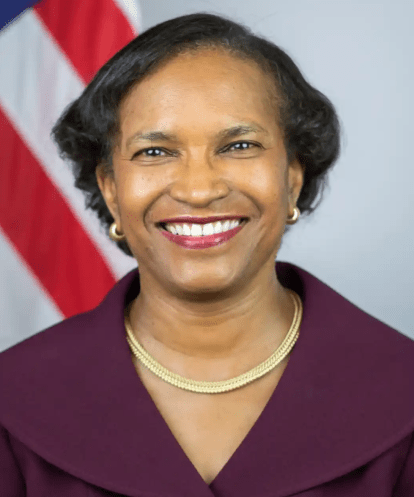
Lillian Stone Distinguished Lecture on Environmental Policy
Monday, April 8, 2024
Brenda Mallory, chair of the Council on Environmental Quality, will deliver the Lillian Stone Distinguished Lecture on Environmental Policy at the University of Virginia. As chair, Mallory advises the president on environmental and natural resources policies that improve, preserve, and protect public health and the environment for America’s communities. The lecture, made possible through a gift from University of Virginia alumni Thatcher Stone (Law ’82) and Frank Kittredge (Architecture ’78), is hosted jointly by the Schools of Architecture and Law. The lectureship is intended to fulfill the intellectual and educational commitments of the two schools by creating an opportunity for students to be educated in environmental policy and the National Environmental Policy Act. The Council on Environmental Quality, situated in the White House, is the nation’s lead office on implementation of NEPA. The talk will be followed by a reception.
PLACE and Power
This series of virtual conversations — sponsored with the Virginia Environmental Law Journal and the Virginia Environmental Law Forum — explores connections between human place-based relationships and the law and politics of environmental governance.
PLACE and Power: A Conversation With Sarah Krakoff and Gerald Torres About the Environment and Native American Rights
Thursday, April 22, 2021
University of Virginia School of Law · PLACE and Power: The Environment and Native American Rights
Professors Sarah Krakoff and Gerald Torres will discuss issues of politics, justice and progress at the intersection of environmental governance and the rights and interests of Native American peoples. The discussion will focus on threats to lands and other natural and cultural resources, such as Bears Ears, and the exclusion of historic tribal uses from publicly managed lands, such as the Grand Canyon.
Krakoff, a nationally recognized expert in Native American law, natural resources law and environmental justice, is the Moses Lasky Professor of Law at the University of Colorado. She is the recipient of two university-wide awards: the Hazel Barnes Prize for distinguished scholarship and teaching, and the Chase Community Service Award for her public service work with low-income communities.
Torres, also a distinguished scholar of environmental law and federal Native American law, is a Professor of Environmental Justice at the Yale School of the Environment and professor of law at Yale Law School. His research into how race and ethnicity impact environmental policy has informed his teaching and practical experiences, and has been widely influential in the field of environmental justice.
The event is the fourth in the “PLACE and Power” series of virtual conversations exploring connections between human place-based relationships and the law and politics of environmental governance, including governance of the built environment.
PLACE and Power: Pathways to Racial and Economic Equity
Tuesday, Nov. 10, 2020
Scholars, authors and policy activists David Troutt and Thad Williamson will discuss the pathways to racial and economic equity in cities and in the nation as a whole, with a focus on the effects of local and regional housing, employment and anti-poverty policies.
Troutt, a Distinguished Professor of Law at Rutgers Law School, is the founding director of the Rutgers Center on Law, Inequality and Metropolitan Equity, and teaches and writes about race, class and legal structure. His most recent book, “The Price of Paradise: The Costs of Inequality and a Vision for a More Equitable America,” is an exploration of the unequal legal geographies of metropolitan America and a mutuality-based argument for regional equity policies.
Williamson, an associate professor of leadership studies and philosophy at the University of Richmond, served as the first director of Richmond’s Office of Community Wealth Building from 2014-16 and then as a senior policy adviser in the Mayor’s Office in a part-time capacity from 2017-18. He is author or editor of several books, including “Sprawl, Justice and Citizenship: The Civic Costs of the American Way of Life,” and co-editor of a new volume titled “Community Wealth Building and the Reconstruction of American Democracy: Can We Make American Democracy Work?”
The event is the third in the “PLACE and Power” series of virtual conversations exploring connections between human place-based relationships and the law and politics of environmental governance, including governance of the built environment.
PLACE and Power: A Conversation With Mary Nichols and Ann Carlson
Oct. 16, 2020
University of Virginia School of Law · PLACE and Power: Improving Air Quality
California Air Resources Board Chair Mary D. Nichols and UCLA law professor Ann E. Carlson will discuss the productive but fraught relationship between cities, states and national environmental decisions-makers, with a focus on the important strides made to improve air quality in California over the past several decades.
Carlson, one of the country’s leading scholars of climate change law and policy, is the Shirley Shapiro Professor of Environmental Law, and the inaugural faculty director of the Emmett Institute on Climate Change and the Environment at the UCLA School of Law. She is also on the faculty of the UCLA Institute of the Environment and Sustainability.
Nichols joined the California Air Resources Board in 2007. She has also served as California’s secretary for Natural Resources (1999-2003); a senior staff attorney for the Natural Resources Defense Council; assistant administrator for the U.S. Environmental Protection Agency’s Office of Air and Radiation; and head of the Institute of Environment and Sustainability at UCLA.
PLACE and Power: A Conversation With Emily Prifogle and Earl Swift
Friday, Sept. 18, 2020
University of Virginia School of Law · PLACE and Power: How Rural Places Shape the Environment
Legal historian Emily Prifogle and author Earl Swift will discuss the importance of rural places in shaping the laws, customs and attitudes of the people who live in them, as well as their role in the cultural and political future of the nation.
Prifogle, a University of Michigan Law School professor, focuses on the use and experience of law in rural areas. She is currently working on a book that tells a story of the rural Midwest in a constant process of transformation along lines of class, race and gender in the 20th century.
Swift is a journalist and author of “Chesapeake Requiem: A Year with the Watermen of Vanishing Tangier Island.” The book records Tangier Island’s distinctive community as the physical place that defines and supports it shrinks with the rising waters of the Chesapeake Bay.
BOOK PANEL
Reviving Rationality: Saving Cost-Benefit Analysis for the Sake of the Environment and Our Health
Tuesday, Nov. 17
In their new book “Reviving Rationality: Saving Cost-Benefit Analysis for the Sake of the Environment and Our Health,” UVA Law professor Michael Livermore and New York University School of Law professor Richard Revesz argue that President Donald Trump’s administration has destabilized the decades-long bipartisan consensus that federal agencies must base their decisions on evidence, expertise and analysis.
In a panel moderated by PLACE Director Jonathan Z. Cannon, the authors and other scholars will discuss the future of cost-benefit analysis and environmental law and policy.
Panelists
- Jonathan Adler, Johan Verheij Memorial Professor of Law; Director, Coleman P. Burke Center for Environmental Law, Case Western Reserve University School of Law
- Michael Livermore, Edward F. Howrey Professor of Law, University of Virginia School of Law
- Richard Revesz, Lawrence King Professor of Law; Dean Emeritus; Director, Institute for Policy Integrity, New York University School of Law
- Amy Sinden, Professor of Law, Temple University Beasley School of Law
- Moderator: Jonathan Z. Cannon, Blaine T. Phillips Distinguished Professor of Environmental Law; Director, Program in Law, Communities and the Environment (PLACE), University of Virginia School of Law
